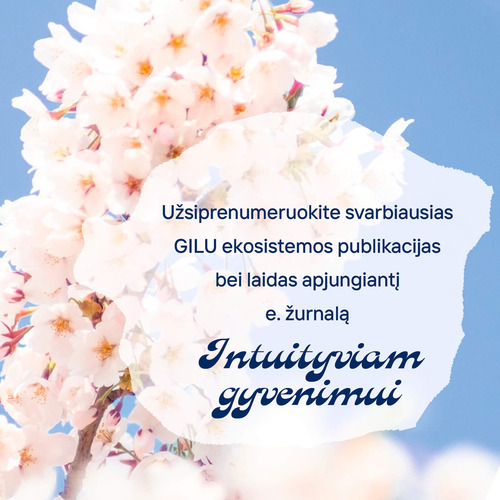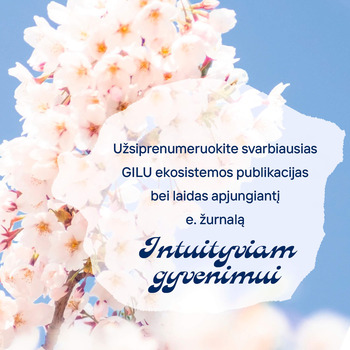Publications
- Home
- Publications
- The intuitive journey to stereotype-breaking Oman
The intuitive journey to stereotype-breaking Oman
2023 05 02LRT.lt
Four travel enthusiasts and entrepreneurial friends - Daiva Viskontienė, Gitana Mačienė, Asta Dekinienė and Rasa Baltė Balčiūnienė - embarked on an experiential trip organised by the HAI Institute in Oman, an Arab country that they had not known very well until then. The Honorary Consul of the Sultanate of Oman in Vilnius, Boleta Senkienė, helped them meet and talk to local businesswomen. The travellers made incredible friendships and discoveries in other parts of this stunning part of the world.
More about what makes intuitive journeys special and what stereotypes Oman is breaking - in LRT.lt article.
What is a sensory journey?
"When we travel, we always define our goals, our intentions, what is most important to us on this trip - whether it is to relax our bodies, to get to know the land, or to combine travelling with work. The purpose of a intuitive journey is to renew oneself. To have new experiences and to be able to reflect on them, to reflect, to make sense of them. To switch from automatic to experiential and to give yourself the gift of firsts", says business psychologist Rasa Baltė Balčiūnienė, who has organised several intuitive journeys.
She notes that such journeys are best undertaken without the family, but with responsibly chosen companions, with whom you can detach yourself from everyday talk and experience a sense of slowness.
"You can experience a country when you feel the wholeness of it, when you get to know not only its past, but also its present and future. Live contact with local people, from as many different contexts as possible, different ages, backgrounds, etc., is very important for this. The same goes for the guides - the more diverse they are, the more backgrounds and perspectives you will experience. It helps to get a feel for a nation's DNA, for what makes it different from others."
When organising such trips, R. Baltė Balčiūnienė always tries to include activities or events that locals organise primarily for themselves. It is also to get to know nature and to do embodiment practices (known in psychology as alignments), which shift the psyche and allow us to notice ourselves in the here and now, as well as to see the future direction of our lives. She says that it is worth starting a journey of sensation by visiting smaller cities and leaving the capitals, where global culture is most present, for the end of the journey.
"The most interesting countries to go to are those where something interesting is happening in the present, a kind of transformation. The moment of renewal I mentioned is when you start to integrate the history and cultural heritage of a country with what is happening now, thus experiencing your own present in a new way," says R. Baltė Balčiūnienė.
Why Oman?
"The purpose of this trip was to renew myself, to shed my old stereotypes that prevent intuitiveness and new ideas from flowing," says R. Baltė Balčiūnienė about her trip to Oman. She had heard about the country from a colleague who had been there and it sparked her curiosity to go there herself.
"I was convinced that what she said was true - it is a wonderland that has not yet been spoiled by mass tourism. We wanted to get to know the local mentality, to learn about the situation of women in business, and we managed to do all that. It was a sensory, sensory journey where we experienced a lot of firsts, a lot of diversity and a completely non-stereotypical way of knowing."
According to another traveller, G. Mačienė, Oman broke stereotypes like no other country. "From the country's deep, old culture, which the locals are very proud of and want to preserve without following global trends, to the male-female relationship, to the status of women. There are a lot of myths about Arab countries and we apply them to all Arab countries. In Oman, many of them do not apply."
D. Viskontiene was impressed by the fact that in Oman, women work, create businesses and the money they earn stays with them - it is up to the men to bring their earnings into the family. As is common in Muslim countries, they can have several wives. "Most of the people we met speak English, are educated and very dignified, respectful of their country, its culture and its deep historical roots."
What to see in Oman?
For Ms Dekinien, who also went on the trip, Oman's nature and the people's relationship with it were the most impressive. Large, extended Omani families like to go to the seaside and have picnics. Oman has the spectacular Al Khajar Mountains, which stretch across the country, and where the travellers went on a four-hour hike and saw stunning natural scenery and the many different colours of the rocks. They also visited a living desert, home to many species of invertebrates. Swimming with dolphins, they heard that the Arabian Sea is home to a huge variety of aquatic animals, like a repository of different species.
"One of the most spectacular experiences was swimming at night in the Arabian Sea, with the plankton shining in the sea. This phenomenon only happens in February and March. It feels like bathing in space, with stars above you and around you," says Ms Dekinienė.
R. "We stayed in yurts prepared for us, but I asked to sleep in the open air. The bed was prepared for me right in the desert, with white sheets on several mattresses. The feeling of the night, with the pressing silence, the vast desert all around you, and the starry sky above you, was incredible. At the same time, I realised that it is probably evolutionarily safer for us to fall asleep with a roof over our heads, or just a clearly defined space."
The travellers also recommend a visit to the market in Nizwa, the country's old capital. "There's so much action there, a performance-like trade that dates back thousands of years, attracting many spectators, even from among the locals. They obviously have the trading gene. Watching a lively, vibrant, face-to-face transaction-based market was extremely interesting", says R. Baltė Balčiūnienė.
By the way, bargaining is not as common in Oman as in other Arab countries and prices are not as high.
A time of transformation
Oman is currently a very safe country, which has changed a lot in the last 40 years, since the long-standing Sultan was replaced by his son, Kabus Bin Said, who has focused on education, the establishment of schools, and the importance of women's education. "He empowered the people to rebuild the country, gave them the confidence and, at the same time, the responsibility that much depends on them. People believe they have the gene for prosperity and remember the greatness of their country when they ruled most of the Gulf", says Ms Viskontienė. The Omanis are now trying to boost tourism in a country where it accounts for just five per cent of GDP (around 80 per cent from the oil industry and the rest from agriculture).
Viskontiene was impressed by the locals' perception that modernisation is not the same as westernization, i.e. the acceptance of the cultural values of the Western world. According to them, when you become a follower, you lose your power.
"Oman is truly a place where, by listening to the locals, you also strengthen your own identity and the desire to be like someone else disappears. The way to develop, to grow, can also be like this - by modernising on one's own authentic foundations," observes R. Baltė Balčiūnienė.
Locals are encouraged to marry and have children with Omanis so that their people survive and do not mix. However, when talking to locals, travellers have often heard that they dream of having spouses from other countries.
"Listening to the locals' dreams and life goals, I kept thinking that dreams are usually born out of our experience and the more we expand that experience, the more we can dream and realise that we want different things than what we imagined," shares Ms Dekinienė.
A nation of poets who know how to adapt to nature
The Omani people revealed themselves to the travellers as a people very much in touch with nature, extremely observant and intuitive. "When we went to the nesting ground of the giant tortoise (said to be the oldest species of tortoise), we were amazed at how a local could see a tortoise crawling out of the sea in complete darkness, about a kilometre away, while we were absolutely unable to see anything. Holding a newly hatched turtle in your arms is also a very special and sensitive experience", says Dekinienė.
The locals have learnt to live in a way that adapts well to the natural conditions and their changes, and to make quick and decisive decisions. On more than one occasion, travellers pointed out that they do not even take action without consultation.
According to G. Mačienė, the Omanis are a nation of poets who learn the beauty of words from an early age. "I also remembered that they work from 7am to 2pm, so they have the whole evening for leisure or creative work," she said.
Changes after the sensory journey
"I feel like I have experienced a different world, I feel like I have a stronger power centre, it's as if the space inside me has expanded," says Viskontienė, "It just so happens that after the trip I took on a new person at work who I would have previously seen as an authority based on his knowledge and expertise, but now I can see more clearly what can work in the culture of our company, and what is something that he has to adjust to himself. I would describe the strengthened centre of power from the Oman trip as growing, innovating, not leaving your own context, not imitating others, and keeping your own identity."
G.Mačienė says she also feels more energised: "More confidence has returned, acting slower and more confident."
"On many trips, the automatic brain network is replaced by the experiential one, and on this trip it was very strong - I just felt that we started to think and see from a new point of view, as if we were stepping out of the usual frame of ourselves," concludes R. Baltė Balčiūnienė.











